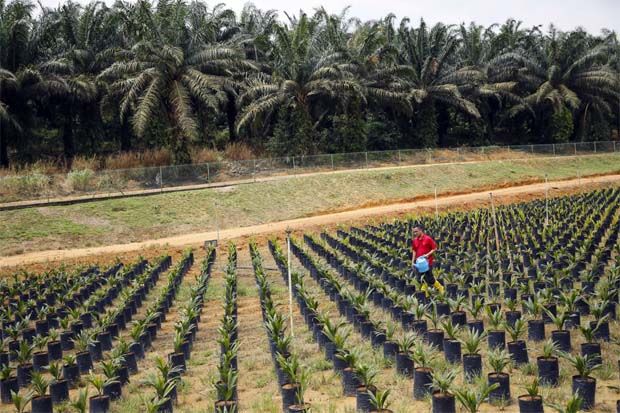Malaysian Palm Oil Price Edges Lower on Upbeat Oct Production Outlook

The benchmark palm oil contract for January delivery on the Bursa Malaysia Derivatives Exchange was down 0.9 percent at 2,218 ringgit ($532.98) a tonne at the close. Earlier in the session, the contract climbed to 2,247 ringgit, its strongest since Oct. 18. Trading volumes stood at 23,560 lots of 25 tonnes each
KUALA LUMPUR: Malaysian palm oil futures hit their highest in three days on Tuesday before falling in the evening on declines in global markets and expectations of rising October production.
The benchmark palm oil contract for January delivery on the Bursa Malaysia Derivatives Exchange was down 0.9 percent at 2,218 ringgit ($532.98) a tonne at the close.
Earlier in the session, the contract climbed to 2,247 ringgit, its strongest since Oct. 18.
Trading volumes stood at 23,560 lots of 25 tonnes each.
An ugly start to European trading pushed global equities towards their lowest in a year on Tuesday as negative drivers from Saudi Arabia’s diplomatic isolation and concern over Italy’s finances and trade wars piled on the pressure.
Expectations of Malaysia’s rising monthly production in October added to the worries, the trader said.
Palm oil production is forecast to rise in the last quarter of the year in line with the seasonal trend before tapering off early next year.
Malaysia’s palm oil inventories had edged up in September to their highest in eight months as production levels came in higher than exports. September production rose by 14.4 percent from August to its strongest in 10 months at 1.85 million tonnes. That was also the highest September level since 2015.
In related oils, the Chicago December soybean oil contract was down 0.9 percent on Tuesday.
The January soybean oil contract on the Dalian Commodity Exchange declined as much as 0.5 percent, while the Dalian January palm oil contract rose up to 0.2 percent.
Palm oil prices are affected by movements of other edible oils that compete in the global vegetable oils market. – Reuters
Source : The Star

